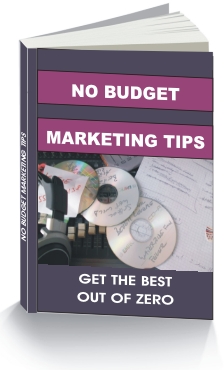The excess supply of ever new music services and ever weirder business models and all the sage advisors out there are currently raising a new breed of musicians that are ready, willing and able to be cheated and taken for idiots. Under the guise of innovation and being hip the decline in values – and prices – is being made palatable especially for young up-and-coming musicians. He who expects being paid reasonable money for his music is being ridiculed and labelled outdated. But what exactly is happening out there?
Nobody would do that live
Let’s take a journey into the live music business for clarification, since that’s where things appear more seizable and common sense still has a say. Nobody will (hopefully) fall for the well-known “play for nothing but exposure at my wedding” gig offers. Even with low pay gigs the economic brain kicks in after a while: 100 miles travel, three hired musicians, rented lights – with a $100.00 band fee we will be in the red.
But on the internet…
The reasonability described above quickly gets lost once the next tech-startup comes around the bend or yet another online marketplace presents itself with an even more questionable payment model. After all, we want to keep up with the times…
Examples? Here you are:
TV networks and film producers regularly pay three to four figure amounts to unsigned musicians for the use of their music. Yet there are providers who pay nothing at all and talk musicians into the great free promotion they get. Shut up and be proud while we’re cheating you.
Nowadays a music publisher’s work mainly consists of securing placements. Once a song gets placed or released the publisher gets his fair share in royalties for compensation. That’s how the business works. But again musicians get tricked into keeping all their rights if they pay a song plugger up front, on spec. “We never touch your royalties” is a common phrase. What it actually means is “Since we cannot make any lucrative deals happen we must solely rely on your cash”.
The Good-Advice Industry
Even worse is the fact that an ever increasing number of self-announced music industry experts even recommend that young musicians accept such methods as their only way to go. Countless books and online courses disguise how and where real money can be made – sometimes on purpose, many times just out of the smart advisors’ own lack of knowledge.
So nobody actually mentions the lucrative music licensing business. Instead they recommend musicians grant micro licenses for the use of their music in home videos published on Youtube, which earn them pennies, while the film, TV and advertising world offers serious money.
Even the sale of downright “high-priced” CDs, vinyl and downloads rarely gets attention. On the contrary smart advisors promote streaming – actually an advertising medium – as the only real source of income for unsigned musicians, with distributions that can’t even pay a superstar’s rent.
Revenue and profits get neglected snidely in so-called success stories, while Youtube views and Facebook likes are being treated like a new currency, in keeping with the motto: You’re broke, but people clicked you.
Then there is good old-fashioned hard work that comes with promotion, booking and building real life contacts and that is now apparently to be substituted by cure-all autopilot social media
It’s obvious
So why can all this happen? It’s clear. Catchphrases such as “income on autopilot” or “free music promotion” resonate with people. More than the success story of a musician who invested money and works 14 hours a day to make a living. The takeaway could kill some illusions and so the “nah, today it works all differently” excuse comes in handy.
Information
Musicians, especially the young ones, should get valuable information about the way the music business really works: What does really generate money, how much, and what do we have to do for it?
If we fail to educate musicians properly we will soon be working in an environment where musicians get even less, if nothing at all, much to the benefit of shady, but all so hip, businesses – and those who sell “good advice”.
Old and new are not mutually exclusive. We shouldn’t demonize things only because they are new, however, at the same time noone should ridicule old models that work.
Most of all, though, musicians should take a close look at what they are doing. It is still easier to make a hundred dollars by selling only 10 CDs rather than waiting for 100,000 Youtube views.
From personal experience I know that it’s easier to get one well-paying TV placement than securing a few hundred micro syncs.
Let’s go full circle with the live gig example we started with. Usually the hassle of getting a gig is always the same. With that in mind we should rather focus on getting one high-paying show than trying to secure five small gigs that generate just as much revenue together.
And if there’s a new fan standing in front of us at the merch table, will we try to sell her a CD in the first place or will we ask her to look us up on Spotify?
The answer is crystal clear – although not a given these days.
* * * * * * * * * * * * * * * * * * * * * * * * *
Get more tips and sign up for the
MusicBiz Madness Newsletter !!!
And get the e-Book “No Budget Marketing Tips” on top. ALL FREE !!!




